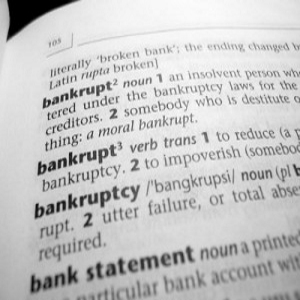Missouri Bankruptcy Terms
Learn the Missouri bankruptcy terms you need to know

These are the most common terms that you should know
- Assets: Property owned or being purchased by the debtor. This can be real property (land) or personal property (everything else). The Bankruptcy Court is interested in any property the debtor has an interest in. The Bankruptcy Court does not care whose name is on the title. The question for the Missouri Bankruptcy Court is “Who really owns this item of property?”
- Automatic Stay: An order entered automatically by the court the very instant the bankruptcy petition is filed with the Missouri Bankruptcy Court. It stops all foreclosures, repossessions, garnishments and creditor contact with the debtor. There are severe penalties for a creditor knowingly violating the automatic stay. If you suspect a violation, you should contact a Missouri bankruptcy attorney immediately.
- Bankruptcy Code: The federal law which governs all bankruptcy proceedings. The Missouri Bankruptcy Center is very familiar with it.
- Chapter 7: The most common type of bankruptcy filed, usually by individuals. It is called a liquidation bankruptcy because the court can take all of your non-exempt assets, sell them and use the money to pay on your debts. However, by using one of our experienced lawyers from the Missouri Bankruptcy Center, most debtors find that they have very few, if any, non-exempt assets.
- Chapter 11: A reorganization bankruptcy proceeding often used by businesses, from small to large. Cases often allow for the owner to remain in control of their business and restructure debts toward profitability.
- Chapter 13: A debt consolidation type of Missouri bankruptcy proceeding for individuals where the debtor makes payments to the court for 3-5 years. This type of Missouri bankruptcy is useful for debtors who are behind on house or car payments but want to keep the asset and just need some time to catch up on payments.
- Collateral: The asset that secures a loan such as a car, boat, house or furniture.
- Creditor: The person or business who is owed money.
- Debtor: The person or business who owes money.
- Default: Non-performance of a term of a contract such as missing a payment or failing to carry insurance on your car when it is collateral for a loan.
- Discharge: The Missouri Bankruptcy Court order which says you no longer are required to pay a debt. Some debts cannot be discharged such as court fines, recent taxes, child support and others. Some debts that cannot be discharged in a Chapter 7 can be discharged in a Chapter 13.
- Equity: The difference between the value of an asset and the balance of any loan where the asset is collateral. Ask your Missouri bankruptcy lawyer to help you calculate equity.
- Exempt: Assets are exempt if the Missouri Bankruptcy Court cannot take them away from the debtor. This allows the debtor to keep exempt property.
- Exemption: The laws which describe which property is exempt. There are federal exemptions and state exemptions. Debtors in Missouri are required to use state exemptions.
- Fair Market Value: The amount a willing buyer will pay to a willing seller for an asset. This is the valuation used in bankruptcy.
- Foreclosure: The legal process a creditor uses to obtain possession of real property from a debtor. After you file for Missouri bankruptcy with qualified bankruptcy lawyers, foreclosures should cease.
- Garnishment: The process a creditor uses to obtain money from a debtor’s bank account or wages after the creditor has a judgment against the debtor. After you file for bankruptcy with qualified bankruptcy lawyers, garnishments should cease.
- No Asset Case: A Chapter 7 case in which the trustee determines that the debtor has no significant assets which can be taken and sold to pay the claims of creditors. The debtor gets to keep all of their assets.
- Petition: The document signed by the debtor and filed with the Missouri Bankruptcy Court which begins the bankruptcy process.
- Preference: A transfer to a creditor by the debtor of property (usually money) to pay a debt that existed prior to filing bankruptcy. Transfers made within a short time prior to filing can be recovered by the Missouri bankruptcy trustee, sold and the proceeds then shared with all of the creditors.
- Reaffirm: The process where the debtor and creditor enter into an agreement reinstating all the terms of a loan after a Missouri bankruptcy has been filed. When this is done, all of the protection of the Missouri bankruptcy filing as to that loan is lost.
- Relief From Stay: The process used by creditors to override the automatic stay described above. Once the creditor obtains a Relief From Stay Order from the court, the creditor is allowed to do whatever the order provides. The order usually provides that the creditor can begin foreclosure or repossession of an asset such as a car or house.
- Trustee: The person appointed by the Missouri Bankruptcy Court to oversee the bankruptcy. The trustee’s obligation is to represent the interests of the creditors.
